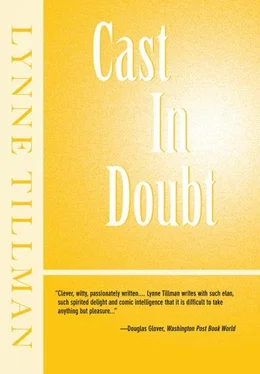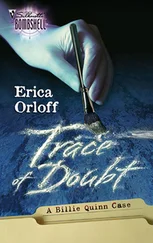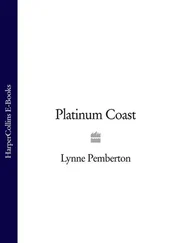Alicia is all in white — white Indian shirt, white duck trousers, which billow about her, and white espadrilles. There’s a white cotton scarf around her throat and probably she is hiding her neck, which may be crepey, showing more years than her face, which is remarkable for its taut skin. But the scarf is tied loosely so that she may be wearing it solely for decoration, not to disguise her age. Alicia doesn’t strike one as a woman who would hide anything in an obvious way, simply not to be a cliché, simply not to appear bourgeois, not to seem to care about what ideally oughtn’t be a concern to an intelligent, rational person. But I always think it is the irrational that tells us much more than the rational; and I am eager to have her get to the point of our meeting. She does so more quickly than is usual.
“Don’t you think it is terrible what young Helen did to poor John?” My first impulse is to say, Who is John? But then I vaguely recall having seen in the distance a lanky, long-haired, nondescript guy — I can’t think of him as a man — wandering in town about the time Helen arrived; then I saw him no more. Or did I? Dear, what did she do to him? I ask. I really have no idea.
Alicia won’t believe this as I have intentionally laid into my voice a qualified archness, and so she will believe that I know what I don’t. I hate not knowing what everyone else knows. She continues and divulges, more or less in this fashion, that John followed Helen here after she refused to marry him. Helen led him on. She allowed him to follow her here and now she refuses even to see him. She abandoned him and the poor boy has tried to kill himself. Ah, I retort, you mean that boy. Alicia, he’s not a child, after all, and if she doesn’t love him…
I’m playing for time. Alicia goes on: John is in the hospital and even now Helen refuses to go to him. And he nearly died. Helen was horrible to him. It’s bad enough that she didn’t want his child and had an abortion when he didn’t want her to.
At this revelation I open my eyes very wide, surely they are popping out. Alicia, dear, are you really in a position to blame a young girl just setting out in life for not wanting to be hampered with a child from a man, a boy, who’s wet behind the ears, one she doesn’t love? Alicia says nothing and looks toward the harbor. And giving up a child for adoption is better? I continue.
Now Alicia’s eyes widen and perhaps it will be this very moment when she can no longer contain within her that horrible secret — the abandoned child, the reckless life she led — but no, she just closes her eyes, takes a breath, during which time she collects herself so as to be able to dissemble, and says, I wouldn’t know. I suppose I don’t really approve of abortion. Then I say something to the effect that it is a good thing she is living here rather than in the States because she would surely be out of touch with the women who have recently won the battle for reproductive rights. I feel foolish putting it that way, as if I were making a speech. Perhaps my feminist ancestors are speaking through me, though probably they wouldn’t have approved of abortion, either. Come to think of it, in the first half of the nineteenth century it was not illegal. Still it is strange to argue what I assume to be the woman’s side, with a woman. I would not call myself a feminist, as I am uncomfortable with almost any label, and also, as I am a man, and rather uncomfortable generally with professing to understand completely the woman’s point of view, I hesitate to make the assertion. Yet I don’t really believe my being a man ought to prevent me from supporting or voicing support for the cause.
Alicia and I agree to disagree with some regularity — she maintains eclectic and inconsistent positions and has erratic views, some more obsolete than my own, some more advanced. In this case, her position demonstrates her stubbornness and a sort of prissy old-fashionedness that may be evidence, or the cause, of her enduring secretiveness. Actually I don’t believe Alicia fully subscribes to what she is saying. I’m sure she’s had abortions, as most free-thinking women who have sex lives usually have had. She is being irrational. Perhaps this is serious.
John visited me days before he — Alicia pauses — before he slit his throat. Slit his throat, I repeat after her, how ghastly. I love the word ghastly. Now I am thinking, there may be more to John, whoever he is, than I imagined. He is a sweet, sweet young man, she goes on, and I can’t see why he clings so to Helen.
Alicia is calling on me, she has summoned me to defend Helen, about whom I know not enough, not that much at all. Helen is brilliant, I respond quickly. She is honest and good-natured. She is independent, a different kind of young woman, Alicia, very different. Rising to the occasion, I continue rhapsodically: Helen is to me like new poetry, a kind of writing I don’t quite fathom; her rhythm and style will be discerned in time. I say this with a flourish and then sip some tea.
Alicia doesn’t know what to do with my exaggerated view, my way of describing Helen, and neither do I. It just came to me in a flash, but I think it’s true, or rather, I am prepared to defend its truth. Especially if Helen is my tabula rasa. But then that means I am writing her, and I am not, since I couldn’t possibly make her up. I do try in my modest way to make it new, as Pound exhorted. It is also important to be able to recognize what is new, as I do in Helen. I attempt, in my real work, to follow that adage. On the surface, and to the world, the world of appearances, I seem not terribly underground in my manner and thinking. Burroughs, for example, is not to my taste. I live my life and exist, in a certain sense, underground, but even that is underground. I am guarded. I don’t flaunt anything, except when I’m drunk. There’s nothing novel about that. Maybe bohemian or vulgar but not new.
Alicia asks me what I’m smiling about. I tell her, as winningly as I can, that I’d once fantasized that Helen was her daughter, that it seemed to me they should like one another. Why don’t you? I ask her. What happened when she came here for tea? Nothing, Alicia answers, nothing at all. Then, with some hesitation, as if biting back more damaging words, Alicia complains that Helen sleeps with too many men and reveals that she, Alicia, can’t bear it, that it upsets her. I feel humiliated for her, she admits, because Helen hasn’t the sense to feel shame. The way she walks, Alicia adds.
Alicia pauses and pours us more tea. That doesn’t, I say finally and primly, sound like nothing. Perhaps Helen is guileless, I expand, rather than shameless. But why then have you offered her piano lessons? I ask. Alicia explains that it is because she is older than Helen and ought to set an example, especially as she hasn’t had children, nor did she ever want them. I suppose I feel guilty, Alicia offers with reluctance. Ah, guilt, I repeat, I am no stranger to that. I smile at her fondly. I do wonder with whom she’s involved now, if she is. She’s more secretive than I, surely.
Alicia walks down the hill with me. She intends to visit John in the hospital. Just before we left her house, she applied a peachy lipstick to her full lips and now she looks rather peachy herself, as if she were a Renoir still life of that fruit. There’s some excitement in her gait. She may be in love with John. Why not? I like young men too. Perhaps, she says to me as we go our separate ways — quaint but true — perhaps I am being harsh about Helen. But suicide, Horace, and John’s a darling, very special. We cluck each other on the cheeks like aging hens.
Alicia disappears in white down the dusty road. I am both full and weightless. It’s mad but I enjoy the melodrama enormously and suddenly feel that I am privy to Helen’s life, the one she hides from me. Perhaps she doesn’t hide it. Simply doesn’t mention it. After all, that was the vow I took with her — not to ask, not to pry, to be free of all that.
Читать дальше












